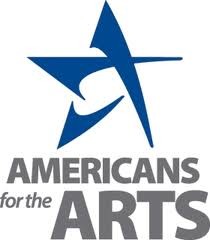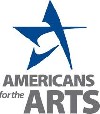2011 Post-Election Impact on the Arts
Critical Analysis by Advocacy Group
By: AFTA - Nov 10, 2011
The 2011 election proved to be a fairly good year for incumbents. Many candidates who are supportive of the arts and creative economies within their state or region were elected into office. There were only two gubernatorial elections this year. In Kentucky, Democratic Governor Steve Beshear won re-election over his republican contender. Earlier this year in May, Beshear announced the creation of a statewide cultural district certification program. In a press release for the initiative, Beshear said “My administration recognizes that a thriving creative sector is a powerful economic development tool and community revitalization asset,” Gov. Beshear said. “This new program will further strengthen these assets, and Kentucky’s vibrant communities.”
In Mississippi, Lt. Gov. Phil Bryant is the Republican winner of the gubernatorial election, and will replace the term-limited Haley Barbour. He is a proponent of expanding the state’s film tax credit program which was launched this year, and co-hosted a film summit over the summer that focused on connecting the local business community to the film industry. Bryant will also preside over Blueprint Mississippi, an initiative launched during Barbour’s tenure that serves as strategic plan to revitalize the state, in part through the expansion of a creative and cultural economy. Bryant had also been a proponent of the state’s Personhood Amendment, which failed with 58% opposition.
States with legislature elections were Louisiana, Mississippi, New Jersey, Virginia, and a special election in Iowa. It now appears Republicans will take party control of the Mississippi state House as well as the Virginia state senate. In Iowa, Democrat Liz Mathis won a special election to fill a state senate seat that was vacated when Governor Terry Branstad appointed Democratic Senator Swati Dandekar to an administrative position. The victory means that Democrats will maintain a razor-thin majority in the state senate. Also of note is the ousting of Arizona Senate President Russell Pearce via recall vote, making him the first recalled elected official in state history. Pearce was the author of Arizona’s controversial immigration legislation, SB 1070.
On the mayoral front, incumbents dominated yesterday’s contests, and the arts appear to be in good hands in several large cities throughout the country. I’m also happy to note that three recipients of the Americans for the Arts Public Leadership in the Arts Awards won re-election: Mayor James Brainard of Carmel, IN; Mayor Michael Nutter of Philadelphia; and Mayor Joseph Riley of Charleston, SC. You can check out full results of yesterday’s mayoral elections at the US Conference of Mayors Election Center. Below are some highlights of key mayoral election outcomes.
Baltimore, MD
Mayor Stephanie Rawlings Blake (D) re-elected.
- Co-chairing a task force with University of Maryland-Baltimore President Jay Perman to study how to revitalize the city’s west side area in part through the development of creative businesses.1
Charleston, SC
Mayor Joseph Riley (D) re-elected.
- Winner of the 1999 Americans for the Arts Public Local Leadership in the Arts Award.
- 2010 Nancy Hanks Lecturer on Arts and Public Policy.
Charlotte, NC
Mayor Anthony Foxx (D) re-elected.
- Strong advocacy voice and public funder of the arts and arts education in Charlotte.
- Fosters programs to build the creative economy throughout the regional area.
- Host of the Democratic National Convention in 2012.
Columbus, OH
Mayor Michael Coleman (D) re-elected.
- Launched the Capital Kids Initiative in 2001 – an afterschool program that includes “Academic assistance, including help with their homework, science projects, literacy tutoring and computer math; Enrichment activities such as cooking, field trips, drama and art.”
- Served on a panel in September with NEA Chair Rocco Landesman titled “A Way Forward: Arts and Economic Development.”2
- In 2004, launched Art Classifieds in partnership with the Greater Columbus Arts Council. It is an n interactive online directory of regional arts education workshops and classes. 3
- Spearheading revitalization of King Lincoln Historical District.4
- Performed a rap on literacy for Columbus public school children.5
Houston, TX
Mayor Annise Parker (D) re-elected.
- Has ordered takeover of two abandoned city properties. One was turned into an African American Library and the other will be turned into an educational center that hosts performing arts events.6
- Annise’s advocacy for quality of life issues earned her Scenic Houston’s 2010 Scenic Visionary Award and the Distinguished Local Elected Official Award from the Texas Recreation and Park Society. The Holocaust Museum of Houston honored Annise with its 2010 Guardian of the Human Spirit Award for her lifetime of working to enhance the lives of others and to better humankind.7
- Presided over launch of city’s first annual Fine Arts Fair. “The City of Houston is proud to host the inaugural Houston Fine Art Fair,” said City of Houston’s Mayor Annise Parker. “We endorse the fair's efforts to focus attention on Houston as a vibrant hub for artists, collectors, galleries, and patrons of fine art. We hope to establish Houston, as a respected and must-attend, regular stop on the national and international fine art fair circuit.”8
Indianapolis, IN
Mayor Greg Ballard (R) re-elected.
- Ballard says even though funding went down on his watch, he's committed to finding more money. "What's most important is that we have skin in the game, so that large players come into play. We're looking at long-term funding mechanism for them outside property taxes, we've been trying for a couple of years. We're tight with the arts council, we're trying to find a revenue stream, if you will, so we can take it off the table at budget time,” Ballard said.9
- When it comes to arts funding, Mayor Ballard admitted that cuts across the board have been necessary due to the flagging economy, but he also said, "Arts are extremely important to economic development." He said the city has held steady on the arts despite a continuing decline in revenue.10
Philadelphia, PA
Mayor Michael Nutter (D) re-elected.
- Strong arts supporter.
- 2011 Public Leadership in the Arts Award Winner.11
- In first budget, doubled Philadelphia Cultural Fund.
- Launched office of Arts, Culture & Creative Economy.
- Launched Philadelphia International Festival of the Arts.
- Incoming president of The United States Conference of Mayors.
- Testified before Congress for increased funding for the National Endowment for the Arts.
Phoenix, AZ
Mayor-elect Greg Staunton (D) wins first term.
- “In my nine years on the city council, I was a consistent supporter of arts and culture, including service as chair of the city council Arts and Culture Subcommittee. I believe strongly that quality economic development and a vibrant arts and culture community go hand in hand. Thus, restoring funding to arts programs (capital funding and arts grants) is critical as soon as the budget allows.”12
- View the candidate survey he completed for Arizona Citizens for the Arts.
Salt Lake City, UT
Mayor Ralph Becker (D) re-elected.
- Will go into a second term ready to push more major projects such as a downtown performance arts theatre.13
- Mayor Becker has actively worked with Salt Lake County designate nearly $500,000 annually for cultural activities downtown, made significant progress towards building the Utah Performance Center on Main, and actively supported the Leonardo, expected to open in April 2011. Mayor Becker has also advocated for neighborhood businesses, including making changes to residential mixed-use and mixed-use zones, launch a small business initiative, hosting Salt Lake’s first neighborhood business conference, creating the small business liaison position, developing the Neighborhood Business Matching Grant Program, and completing a Community Housing Plan, with specific objectives and goals for increasing vitality within our City’s neighborhoods.14
San Francisco, CA
Interim Mayor Edwin Lee (D) elected.
- Established Public Art Trust Fund, allowing developers to contribute one percent of construction costs directly to a fund managed by the arts commission, instead of commissioning the public art project themselves. 15


